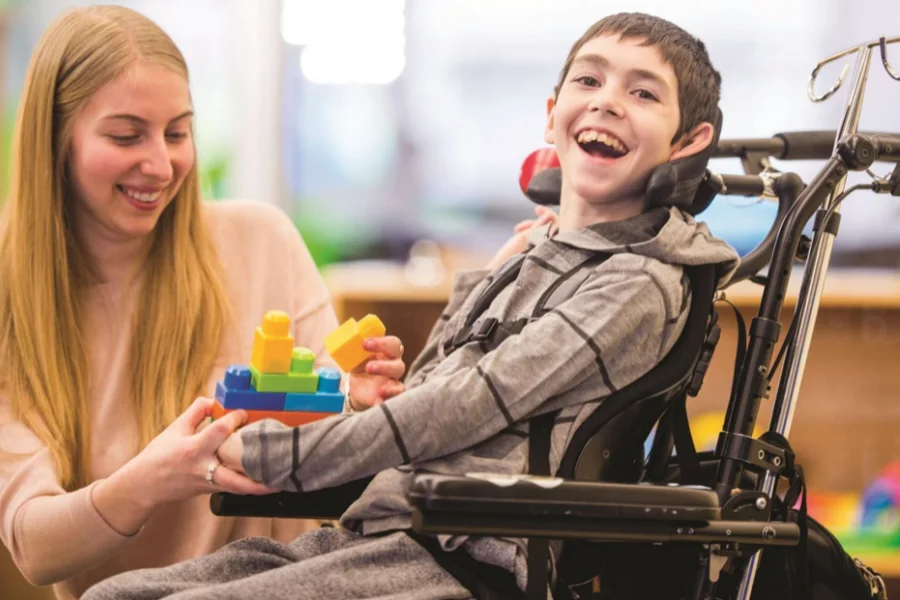
Source: forbes
Autism or Autism Spectrum disorder is a broad term that includes many neurodevelopmental conditions that have distinct characteristics. As indicators show the instances of autism are on the rise due to various environmental factors. For aspiring teachers and in-service teachers who want to branch out in this field of Special Education for better prospects understanding what are the different types of Autism is a crucial pre-requisite.
The prime symptoms of ASD are marked by a delay in language in social development. ASD is a lifelong condition that cannot be cured but can be managed effectively by applying ideal strategies by Special Educators and inputs from various other agencies such as occupational therapists, and psychologists who work together to foster the child’s overall holistic development.
A neurodevelopmental disorder has been lately detected in a higher percentage of children in the early years, symptoms, and specific treatments therefore gaining in-depth knowledge about Autism is a pre-requisite for establishing a successful career in the field of Special Education.
For more detail on the Special Education Needs Course Call / Whatsapp at +919321024137 / +919869866277.
To Download the Brochure of the Special Education Needs Course, Click Here!
What is Autism and Symptoms of Autism?
Autism Spectrum Disorder (ASD) refers to a host of neurodevelopmental conditions that become visible during the period of Early childhood which is 3 to 6 years of age due to certain genetic factors and environmental factors. The language development skills of the child grow sporadically in this period and possessing ASD can severely hamper the child’s communication as well as interpersonal skills.
It often co-exists with other conditions such as ADHD, and learning disorders. In some cases, autism and symptoms become evident only when these individuals face increased demands or challenges.
Types of Autism
Kanner’s Syndrome
Characterized by significant language delays and social challenges.
Asperger’s Syndrome
Features milder symptoms with notable social difficulties.
Rett Syndrome
It is a part of the genetic spectrum disease in which girls have a higher chance of getting affected It occurs due to a mutation in the MECP2 Gene.
Childhood Disintegrative Disorder (CDD)
This disorder occurs due to the production of a protein called amyloid in the brain leading to the loss of previously gained social, verbal, and movement skills.
Pervasive Development Disorder Not Otherwise Specified (PDD-NOS)
This refers to individuals who possess ASD symptoms but are comparatively milder as compared to others.

Source: istockphoto
Symptoms of Autism
Autism and symptoms can vary significantly among individuals, but common signs include:
Communication Hindrances
The child exhibits delayed development of spoken language and language abilities, making it challenging for them to engage in and sustain conversations.
Social Interaction challenges
The child often has challenges comprehending and responding appropriately to social signals, picking up on the unspoken rules and subtle nuances of social interactions. Inability to connect well with their peers or classmates due to which forming friendships in group settings is a herculean task.
Repetitive Patterns or Actions
Children with autism usually perform repetitive patterns of action such as nodding their heads, and flapping their hands. These intense behaviours might be detrimental to their overall well-being especially physical well-being at times.
Sensory Issues
Autistic Individuals often face issues when they come in contact with sensory stimuli such as sounds, lights, and textures. The child might react in a manner that can be challenging to handle in the day-to-day experiences.
Over or under-reacting to sensory inputs such as sounds, lights, or textures.
Regressive autism is another aspect, where a child develops typically and then starts losing previously acquired skills. Early recognition of autism and its symptoms can lead to better support and interventions, helping individuals lead fulfilling lives. Understanding the types of autism is crucial for providing tailored care and assistance.
For more detail on Special Education Needs Course Call / Whatsapp at +919321024137 / +919869866277
To Download the Brochure of the Special Education Needs Course, Click Here!
Are Autism Courses Online Beneficial?
Autism Courses Online offered by Vidhyanidhi Education Society (Govt. Regd.) provides flexible and accessible learning opportunities for those looking to understand and support individuals with autism. These courses are particularly beneficial because they provide comprehensive knowledge and practical skills without the need for physical attendance, making them ideal for busy professionals and caregivers.
One notable provider of Autism Courses Online is Vidhyanidhi Education Society (Govt. Regd.), which offers a Special Education Needs Course with several attractive features:
Economic pricing of the Fees
To cater to a wider section of candidates the fees are priced at a cost easily affordable.
Proficient Team
An adept team of leading professionals with great accolades in the field of Autism has developed this course guaranteeing high-quality education.
Review based on MCQ
Traditional exams are done away with in this course and replaced by a modern mode of MCQ-based reviews.
Discreet Certification
The term ‘online’ mode of study is not mentioned on the mark sheet and certificate, providing the same credibility as traditional courses.
Worldwide Acceptance
This certification enjoys worldwide recognition enabling candidates to establish a career on the global pedestal.
Autism Courses Online enables trainees to acquire a highly job-certifying credential ensuring they gain an in-depth understanding of different types of autism the challenges it poses and the interventions that help to overcome these struggles. They train students with the information and tools needed to make a positive impact. By enrolling in such courses, individuals can improve their skills and contribute effectively to the field of special education.
Unlock your potential! Join Vidhyanidhi’s Special Education Needs Course today!
For more detail on Special Education Needs Course Call / Whatsapp at +919321024137 / +919869866277.
To Download the Brochure of the Special Education Needs Course, Click Here!
FAQs
What Type of Autism is Most Common?
Autism Spectrum Disorder has been recognized as the most common Autism type including a range of neurological conditions with unique characteristics and treatments.
How can I Learn Autism at Home?
Learn about autism at home through online courses, webinars, books, and resources from reputable organizations. Practical application and observation are key.
How can I Become a Certified Autism Specialist in India?
You can become a certified autism specialist in India by pursuing a Special education program to gain valuable insights from a trusted platform of Vidhyanidhi Education Society (Govt. Regd.).



